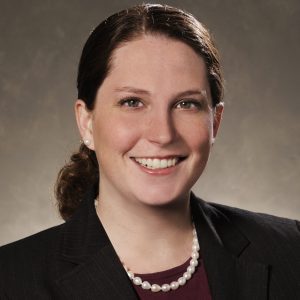CURRENT MONTH (October 2023)
Bankruptcy
Supreme Court to Hear Three Bankruptcy Cases This Term
By Yifan Cui[1]
The Supreme Court has granted certiorari to hear three bankruptcy cases in the 2023–24 term, addressing issues from whether the Purdue Pharma Chapter 11 plan confirmation and the third-party releases of the Sackler family should be revisited, to technical but substantial questions about the remedy for violations of the constitutional requirement of the uniform application of bankruptcy laws, to the question of who has standing to object to a debtor’s proposed Chapter 11 plan. The Court’s decisions in each of these cases could have far-reaching implications within and outside the context of bankruptcy law.
Harrington v. Purdue Pharma LP
On August 10, 2023, the Supreme Court granted certiorari to review the Second Circuit’s decision in Harrington v. Purdue Pharma LP, Case No. 23-124 (Sup. Ct). The Court also granted a stay of the decision below, so that Purdue Pharma’s confirmed Chapter 11 plan is presently on hold.
The Supreme Court will decide whether the Bankruptcy Code authorizes a court to approve, as part of a Chapter 11 reorganization plan, releases that extinguish claims held by nondebtors against nondebtor third parties without the claimants’ consent.
Purdue Pharma is owned and controlled by the Sackler family. It manufactured and distributed OxyContin, a pain reliever that contributed significantly to the national opioid epidemic. By 2019, Purdue Pharma and the Sackler family were facing enormous potential liability to victims, survivors, and other impacted by the epidemic. As a consequence, Purdue Pharma filed for Chapter 11 bankruptcy protection in the Bankruptcy Court for the Southern District of New York.
After extensive litigation and a mediation before a retired bankruptcy judge, the Bankruptcy Court confirmed Purdue Pharma’s Chapter 11 plan, which resolved the lawsuits filed against Purdue Pharma and the Sackler family. The Sacklers agreed to contribute approximately $6 billion to fund the plan, and in return, they received broad releases of liability from the claims against them.
The confirmation of the plan was appealed to the District Court by the United States Trustee William Harrington, and that court reversed the confirmation order on December 16, 2021. Thereafter, on May 30, 2023, the Second Circuit reversed the District Court’s decision and approved Purdue Pharma’s Chapter 11 reorganization plan, including the Sackler family’s payment of up to $6 billion in exchange for the nonconsensual third-party releases that protect the Sacklers from OxyContin claims. In doing so, the Second Circuit identified several factors to be considered in determining whether to allow such releases.
In seeking cert and a stay of the Second Circuit’s decision, the U.S. Trustee argued, among other things, that “[t]he Sackler release is not authorized by the Bankruptcy Code, constitutes an abuse of bankruptcy system, and raise serious constitutional questions by extinguishing without consent the property rights of nondebtors against individuals or entities not themselves debtors in bankruptcy.” In response, Purdue Pharma argued, among other things, that third-party releases have been used by courts for decades as critical tools to promote the fair and efficient resolution of the most complex and difficult bankruptcies in the country.
The Supreme Court’s decision may well have broad consequences in many areas, within and outside the bankruptcy and Chapter 11 context. Argument in this case is scheduled for December 4, 2023.
Office of the U.S. Trustee v. John Q. Hammons Fall 2006, LLC
On September 29, 2023, the Supreme Court granted certiorari to review the Tenth Circuit’s decision in Office of the U.S. Trustee v. John Q. Hammons Fall 2006 LLC, Case No. 22-1238 (Sup. Ct.).
This case arises in the aftermath of the Court’s decision in Siegel v. Fitzgerald (596 U.S. 464, (2022)), where the Court held that increases in the United States Trustee fees due in large Chapter 11 cases, applicable in most federal judicial districts but not in Bankruptcy Administrator districts, violated the constitutional requirement set forth in Article I that bankruptcy law shall be uniform across the country. In Siegel, the Court did not address the appropriate remedy to address that constitutional violation.
The Supreme Court will decide whether the appropriate remedy for this constitutional uniformity violation is to require the United States to “to grant retrospective refunds of the increased fees paid by debtors,” or instead “either to deem sufficient the prospective remedy adopted by Congress or to require the collection of additional fees from a much smaller number of debtors in Bankruptcy Administrator district.” Notably, in the cert petition, the petitioner U.S. Trustee acknowledged that there is no split of authority among the Circuits on this issue, as all four Circuits that have addressed the question have found that Chapter 11 debtors are entitled to a refund of their overpayment.
The Supreme Court’s decision could conceivably have ramifications for other questions arising under the Constitution’s bankruptcy clause. It could also shed light on the Court’s approach to striking a balance between the requirements of the bankruptcy clause and the practical ramifications of crafting a remedy. An argument date has not been set.
Truck Insurance Exchange v. Kaiser Gypsum Co.
On October 13, 2023, the Supreme Court granted certiorari to review the Fourth Circuit’s decision in Truck Insurance Exchange v. Kaiser Gypsum Co., Case No. 21-1858 (Sup. Ct).
The Supreme Court will decide whether an insurer with financial responsibility for a bankruptcy claim is a “party in interest” that may object to the debtor’s Chapter 11 plan of reorganization.
Here again, the case arises in a broader context. The respondents are defendants in more than 38,000 asbestos-related lawsuits since 1978. While asbestos was, in the past, commonly used in construction and other industries as resistant to heat, fire, and corrosion, it has now been associated with an increased risk of serious disease, including asbestosis, mesothelioma, and lung cancer, among others.
In 2016, the respondents filed for Chapter 11 bankruptcy protection in the Western District of North Carolina, with some 14,000 asbestos-related personal injury lawsuits arising from their past manufacture and sale of products containing asbestos. In particular, the debtor-respondents looked to Bankruptcy Code Section 524(b), which addresses the “channeling” of future claims.
The petitioner, Truck Insurance Exchange, was the respondents’ primary liability insurer from the 1960s to the 1980s. The policy terms required Truck to investigate and defend the respondents against every covered asbestos personal-injury lawsuit and to indemnify up to $500,000 per claim, even if the claims proved to be groundless, and without an aggregate exposure limit.
The debtor-respondents’ Chapter 11 plan proposed to establish a trust under Bankruptcy Code Section 524(g), to be funded by $1 million from the debtors and $49 million from the parent-respondent, Lehigh Hanson, Inc. But the asbestos claims covered by Truck’s insurance policy would continue to be litigated outside of the trust, and the trust would pay a $5,000 deductible for each such claim under the insurance policy.
Truck objected to the Chapter 11 plan, because, among other reasons, the uninsured claims to be addressed through the trust were subject to antifraud provisions and an administrative disclosure process, but the plan did not provide similar antifraud protections for the insured claims for which Truck would be responsible. Truck argued that the Chapter 11 plan was not proposed in good faith because it treated insured claims and uninsured claims differently, and only protected the trust, but not Truck, from fraudulent claims.
The Bankruptcy Court and District Court for the Western District of North Carolina found that Truck did not have Article III standing to raise these objections to confirmation. The Bankruptcy Court recommended, and the District Court found, that the Chapter 11 plan was filed in good faith, and that it was insurance-neutral. The insurance neutrality rule blocked the insurer from objecting to the plan, even though the insurer would bear near-exclusive financial responsibility for claims under the plan.
The Fourth Circuit affirmed the District Court’s finding that Truck, as an insurer, was not a “party in interest” under Bankruptcy Code Section 1109(b), because it did not establish that its rights or interests were impaired by the Chapter 11 plan. As a consequence, it lacked standing to object to the plan. The Fourth Circuit also found that Truck lacked Article III standing as a creditor because the plan only implicated the rights of the asbestos claimants who unanimously voted in favor of the plan.
The Supreme Court’s decision should bring some clarity to the question of standing in the particular context of this case. It may also provide guidance as to who is a “party in interest” in a Chapter 11 bankruptcy case.
Finance
U.S. Government’s Committee on Foreign Investment in the United States Expanding Real Estate Transactions Requiring Review
By Margaret M. Cassidy, Cassidy Law
The U.S. Committee on Foreign Investment in the U.S. (“CFIUS”) regulations require CFIUS review and approval of investments by non-U.S. persons in a U.S. business that has critical technology or that has data and information on U.S. persons. It also requires CFIUS review of certain real estate transactions if non-U.S. persons are purchasing real estate that is critical infrastructure or that is near critical infrastructure. 31 CFR Parts 800–802. CFIUS regulations allow the U.S. government to prevent or unwind a transaction or require mitigation strategies for a transaction if there is credible evidence that non-U.S. investment may threaten U.S. national security. 31 CFR §800.101.
CFIUS “covered real estate transactions” include any real property purchase, lease, or concession to a non-U.S. person that gives the non-U.S. person the right to:
- Access the property
- Exclude others from accessing the property
- Improve or develop the property
- Attach fixed structures to the property
See 31 C.F.R. §802.212 (citing 31 C.F.R. §802.233(a)).
The CFIUS regulations focused on real estate are directed toward property transactions located near critical infrastructure such as certain maritime ports, airports, and military facilities. Given the U.S. government’s national security concerns related to recent non-U.S. persons purchasing U.S. real estate near military facilities, CFIUS proposed regulations that became effective in September that update when CFIUS review is required for real estate transactions within a certain distance of military facilities because these military facilities conduct sensitive defense operations. 31 CFR Part 802, Provisions Pertaining to Certain Transactions by Foreign Persons Involving Real Estate in the United States. The expanded set of military facilities is listed in the regulations.
The proposed CFIUS regulations are consistent with one of the goals of CFIUS, which is ‘‘[t]o ensure national security while promoting foreign investment.” 73 FR 74567, 74568 (Dec 8, 2008). Even with this goal, foreign investment in the United States is to be welcomed and restricted only as necessary to protect national security. Id.
California Legislature Passes Two Bills Impacting Small Business Financing
By Kate Fisher, Hudson Cook LLP
The California legislature recently passed two bills that impact small business financing, Senate Bills 666 and 33.
California Senate Bill 666 would prohibit the following fees in connection with a commercial financing transaction:
- A fee for accepting or processing a payment via ACH. Note that NSF fees are exempted and will remain permissible.
- A fee for a payoff statement, including fees for statements that allow a recipient to calculate per diem interest.
- A fee in addition to an “origination fee” unless the fee is for providing a clear corresponding service. In particular, “risk assessment,” “due diligence,” and “platform” fees are prohibited.
- A fee for monitoring a recipient’s collateral before an obligation is sixty days delinquent.
- UCC lien filing and termination fees greater than 150% of the actual cost of filing or termination.
If a provider or broker charges any of the above fees, the recipient is entitled to actual damages (including but not limited to the amount of the prohibited fees that the recipient has paid), statutory damages of $500 to $2,500, injunctive relief, attorneys’ fees and costs, and any other relief that the court deems proper. A recipient may not waive the provisions of SB 666.
SB 666 defines the term “commercial financing” by reference to Cal. Fin. Code § 22800, which defines the term to include accounts receivable purchase transactions (i.e., revenue-based financing), factoring, asset-based lending, commercial loans, commercial open-end credit plans, and commercial leases. The bill applies to transactions with amounts financed of $500,000 or less. Additionally, the bill applies only if the recipient is a small business, which means, among other things, that it and its affiliates together have one hundred or fewer employees and average annual gross receipts of $15 million or less over the past three years. Depository institutions are exempt from SB 666, as are real property–secured transactions.
Governor Gavin Newsom signed SB 666 on October 13; it will become effective on January 1, 2024.
California Senate Bill 33 provides a limited safe harbor for a commercial financing provider that is required to disclose an “Estimated APR.” The bill would also make permanent the annualized rate disclosure in California’s Commercial Financing Disclosure Law.
In response to concerns from commercial financing providers, SB 33 adds the following limited safe harbor to California’s Commercial Financing Disclosure Law:
No provision of this division imposes any liability on a provider as a result of the actual Annual Percentage Rate (APR) charged by a provider differing from the Estimated APR disclosed in conformity with any regulation, order, or written interpretive opinion of the commissioner or any such opinion of the Attorney General, whether or not such regulation, order, or written interpretive opinion is later amended, rescinded, or repealed or determined by judicial or other authority to be invalid for any reason.
The new safe harbor provides some relief to commercial financing providers that are working to comply with the requirement to calculate and disclose an “Estimated APR.”
California’s Commercial Financing Disclosure Law was created in 2018 by SB 1235. To address concerns regarding the accuracy of an annualized rate disclosure, SB 1235 included a January 1, 2024, sunset for that part of the law. By repealing the sunset, SB 33 would make the annualized rate disclosure a permanent feature of the law.
A separate legal challenge to the annualized rate disclosure remains ongoing. In 2022, the Small Business Finance Association (SBFA) sued Clothilde Hewlett, the Commissioner of the California Department of Financial Protection and Innovation (DFPI), seeking a declaratory judgment and injunctive relief related to the DFPI’s small business lending disclosure law and regulations. The SBFA argues, among other things, that the DFPI’s requirement to disclose the cost of credit as an annualized rate in the context of commercial financing in the form of a lease or sale transaction requires a form of speech that “is inaccurate and does not translate into meaningful disclosures regarding the costs and characteristics of the transactions governed by SB 1235. That means the disclosures required under the Regulations, far from providing accurate information that would allow businesses to compare the terms and costs of different financing options, actually require providers to give inaccurate disclosures that will confuse the recipients that rely on financing provided by SBFA’s Members.”
[1] Yifan Cui is an intern to Hon. Elizabeth Stong of the U.S. Bankruptcy Court for the Eastern District of New York, in Brooklyn. Ms. Cui is a 2022 graduate of Brooklyn Law School.










